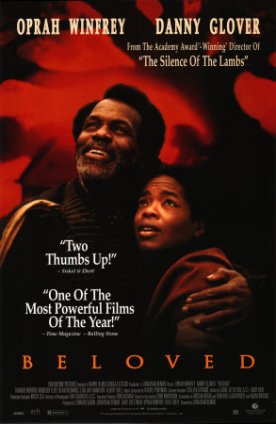Touch
Touch by Paul Schrader, based on a twenty year old novel by Elmore Leonard, has an appealing premiss but with no idea of what to do with it. The premiss is that a young former Franciscan calling himself Juvenal (Skeet Ulrich), but whose real name is Charles Lawson, returns from a missionary calling in the Amazon to a Catholic rehab center in Los Angeles with an unexpected gift of healing and the stigmata. Of course he is instantly descended upon by a gang of sleazy characters who want to use him for their own benefit. He moves among them with his innocence more or less intact, at least so far as exploiting his gift is concerned, but he also falls in love and runs off to Des Moines with Lynn Faulkner (Bridget Fonda) — who had met him as the cat’s paw for one of the con men. Naturally enough, I suppose, today’s movies don’t know what to do with holiness except to provide it with a love interest.
Bill Hill (Christopher Walken) is a former Southern preacher (if you believe that, you’ll believe anything), whose church did not survive its translation to the west coast and who is now selling siding and recreational vehicles. He is quick to see the commercial possibilities for this miracle worker. At the same time, a traditionalist Catholic called August (Tom Arnold), who leads a comically militant paramilitary group called the Grey Army of the Holy Ghost, takes an interest in him. The Grey Army are affiliated with something called OUTRAGE, which is dedicated to bringing back the Latin Mass. The point is, in case you missed it, that August is supposed to be as corrupt as Bill, and a lot less likable. He too merely wants to use Juvenal — as a figurehead for his movement.
As if these two were not enough, Paul Mazursky plays Artie, a record company executive whom Bill is trying to get in on the action. Artie is given to expressions of Hollywood wit, as when he says to an anonymous interlocutor on his ever- present cellular phone: “I’m hanging up before I get that new kind of AIDS — the kind you get from listening to a******s.” Bill pitches Artie on a record tie-in for Gregorian chant (“Zero overhead — zero!”) and asks: “You know how many the Pope sold?”
“Two point five,” answers Artie at once.
“Exactly.”
“But he toured.”
For some reason, probably length, whatever else there may originally have been of Artie seems to have ended up on the cutting room floor, but his truncated appearance here helps to unbalance the picture and adds to a more general narrative incoherence. Similarly, both Bill and August try to interest a tabloid reporter, Cathy Worthington (Janeane Garofalo) in the story of the Juvenal and his healing of a boy with cancer. Again there is a good joke to introduce her. When she begins to seem skeptical about the story and questions Bill about the details of the case, she asks him what the boy’s mother (Lolita Davidovitch) does: “Would you believe it?” says Bill, looking like the cat that got the cream. “Richie’s mom is a topless dancer.”
“Wait right here,” says Ms Worthington, who runs to get her notepad.
But again, this is almost the last we see of her. Media exploitation seems to be left to an Oprah-like daytime talk-show host called Debra Lusanne (Gina Gershon). Bill promises her that, if she brings Juvenal on her show, he will “heal the cripple of your choice live, on national television.” He’s getting a cut of the book deal he has made with Ms Worthington — and all this without a word of consultation with Juvenal himself, who remains seraphically detached from it all. In spite of Lynn’s warnings of Bill’s rapacity, he tells her he doesn’t care. “You’re worried about people taking advantage of me,” he says to her. “How can they do that if I don’t make any claims?” In fact, he tells her, he thinks his powers have gone, and it is this which he determines to announce on national TV.
The climax, on Debra’s TV show, is somewhat less hilarious than we might have expected it to be. By this time it is beginning to look as if Schrader is losing focus on Juvenal (again, probably, because he doesn’t know what to do with him) and only paying attention to the snotty, contemptuous portrayal of the traditionalist Catholics, as represented by Tom Arnold’s character. This, too, is the sign of a more general unwillingness to understand what religious belief, let alone holiness, is all about. It is as if Schrader cannot even imagine that such a young man as Juvenal is could have any higher ambition than to meet the foxy Miss Fonda and decamp to Des Moines (i.e. “From the Monks”). It is ridiculous and renders the rest of the attempted satire ridiculous as well.
[Actually, the best line in the picture is a throwaway. It comes when someone asks Bill why he’s not married. “I had a lovely wife,” he says wistfully “Barbara Rose. And her memory is all I can handle.”]
Discover more from James Bowman
Subscribe to get the latest posts to your email.






